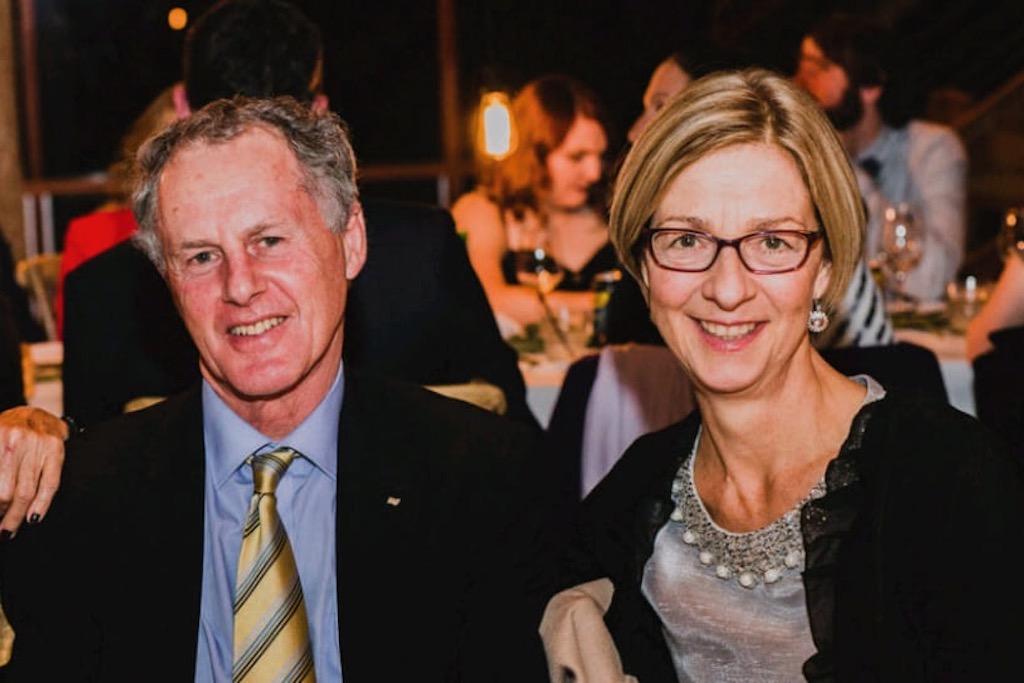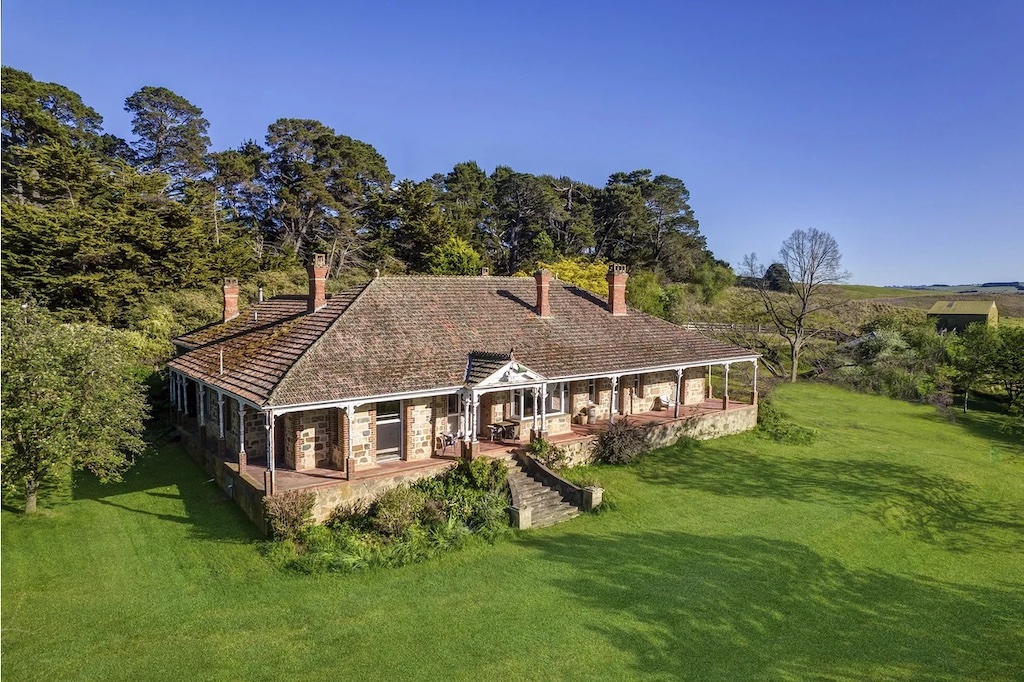
Charlie and Kris Prell are looking forward to the next chapter of their lives after selling the family’s 865-hectare property Gundowringa which Charlie’s great-grandfather bought in 1904. Photo: Prell family collection.
The Prell family dynasty has come to an end with the sale of Gundowringa, between Crookwell and Goulburn.
Undulating hills which Charles Prell turned into rich pastures through superphosphate and subterranean clover, and a six-bedroom homestead and guaranteed income from 13 wind turbines has sold for an undisclosed sum, believed to have exceeded expectations of $11 million to $12 million.
“My father (Jeff) passed away two years ago,” fourth-generation owner Charlie Prell said. “I have four sisters; I did not want to take the debt burden that would have been to buy out my sisters’ interests in the property.”
Nor did he and his wife Kris want to split up the property. “We wanted to retire and decided to sell the property and take our equity and go somewhere else and do something different.”
Their son Nicholas, a landscape architect and project manager, and daughter Alexandra, a lawyer, live in Sydney and do not want to be farmers.
The Prell family story is comparable to any saga from Australia’s agricultural past, beginning with 17-year-old Charles, a jackaroo in Queensland learning about the land, having failed the expectations of his father Frederick Prell, a Melbourne-based merchant who had immigrated from Germany who thought his son was unfit for business, and ought to be on the land.
After a short stint managing his father’s property Charles borrowed enough money to buy a neighbouring property, Savannah Downs in the Queensland Gulf Country cheaply because of its lack of water. Pursuing a gut feeling, he sunk bores until water gushed from the earth.
Marrying a new arrival from England, 20-year-old Caroline Ivy Chave, the couple lived in a slab hut far from the comforts of the Old Country and shared the heartbreaking experience of making a tiny coffin and burying their first daughter Helen Mary. She had died when she was six months old.
“It was always Charles and Ivy,” Charlie said. “She does not get spoken about a lot, but she was a really strong-willed, good businesswoman in her own right. She went through the hardship of losing her daughter in the middle of nowhere.”
The determined couple finally began to reap rewards from their fat cattle, enabling them to sell up and head south where they ultimately settled on Gundowringa in 1904.
A substantial homestead was added in 1905 to the original stone home. Designed by Goulburn’s acclaimed architect E.C. Manfred the home has a fireplace and wash basin in each room, high pressed metal ceilings and bay windows in family rooms and the main bedroom.

The six-bedroom, architect-designed homestead surrounded by wide verandahs at Gundowringa, 17 kilometres south of Crookwell. Photo: Inglis Rural Property.
For a time Gundowringa was No 1 on the Woodhouselee Telephone Exchange and went on to host social gatherings and open gardens.
Charlie’s father Jeff, his uncle Tony and John Carter were key originators of the Kookaburra Cricket Club for GPS old boys and country clubs wanting to play social cricket of a Sunday. They hosted touring teams from Wales, India and England. “It was really serious, high-quality cricket with drinks breaks, lunch breaks and afternoon tea and social activity … having a beer before going out to bat,” Charlie said.
But grim times stoked by savage droughts through the 1990s and again in the 2000s and wasting disease tested the Prell family. “We were in debt up to our ears; we had a second mortgage on the property back then, that’s when I started getting interested in the concept of wind turbines,” Charlie said. As vocal and prominent as Charles had been transforming agriculture across the board, his great-grandson became as conspicuous in the renewable energy industry.
They tried to sell land in 2006 in the Millennium drought. But no one wanted to buy it. Creating a nightmarish scenario for Jeff and Charlie, the outbreak of Johannes disease forced them to wind down the Corriedale stud Charles had established. “We could not sell rams outside the district for a decade in the Riverina or Central West,” he said.
In more recent times the inclusion of 13 wind turbines and a substation enabled fencing to be renewed and put Gundowinga on a viable footing. As settlement on the sale looms, Charlie’s last hope for Gundowringa has been realised: it has been sold as a going concern rather than carved up into insignificant lots.







